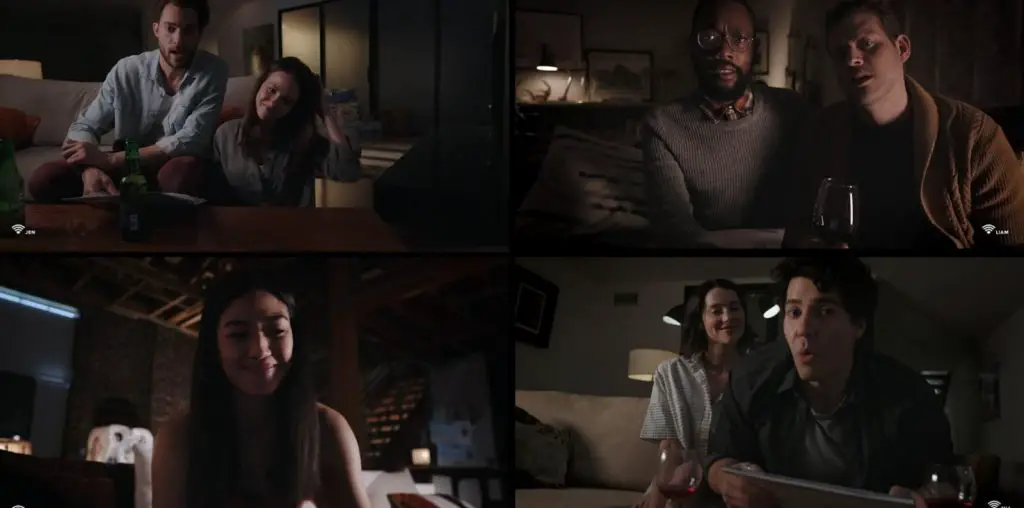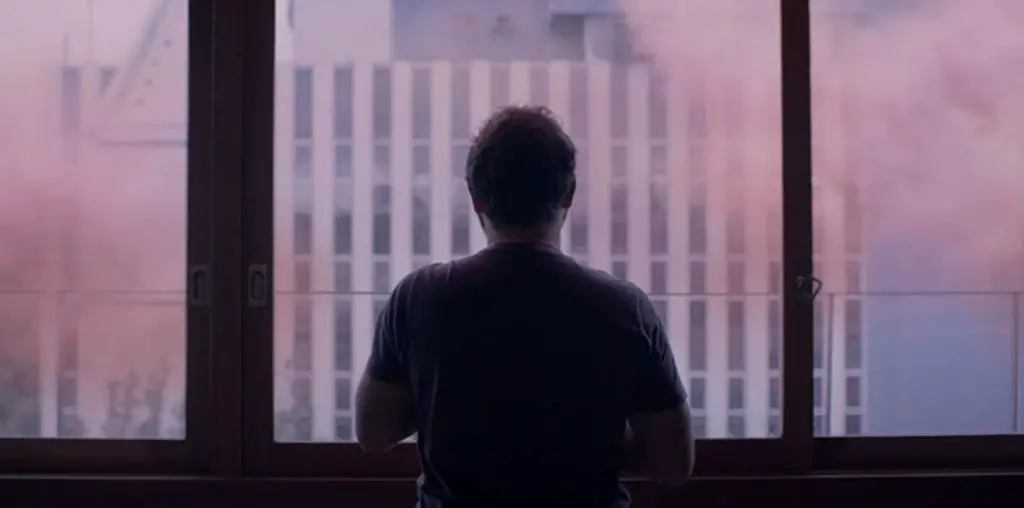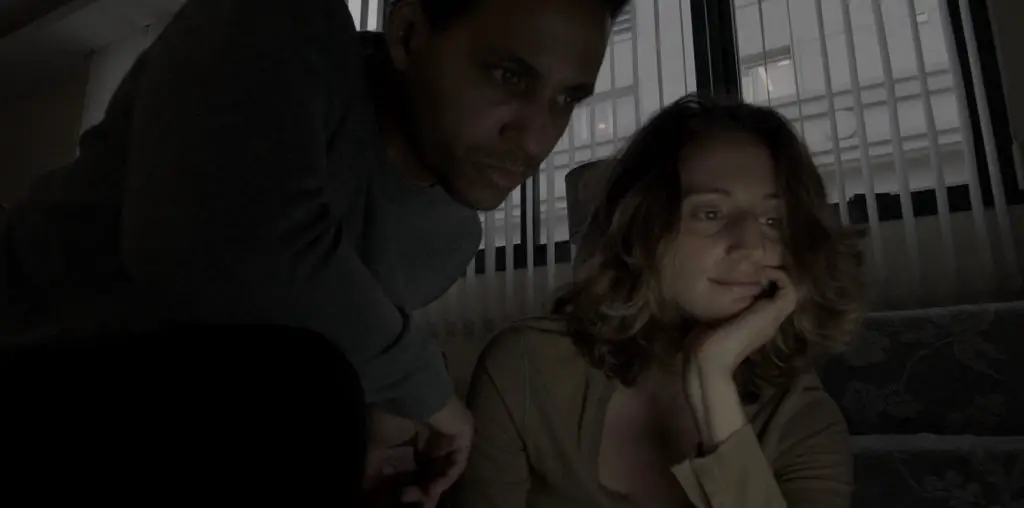
But then, The Death of Us pulls the rug out, shifting abruptly from being a film about the pandemic as we knew it to being a much darker one about the pandemic that many feared was coming. In short order, the situation devolves into an authoritarian hell as the government imposes martial law. Military drones enforce the restrictive lockdown rules. Utilities such as electricity and water are rationed, as is food. All the while, the flow of communication with the outside world is reduced to nothing but terse orders periodically delivered over a loudspeaker. Morgan and Katie do what they can to weather it, but as the situation gets bleaker with no end in sight, they get closer to reaching their devastating breaking points.
This turn of events is foreshadowed by the fatalistic title, as well as the marking of time via on-screen text that lists not only days but also the concurrent death count (which reaches into the millions before too long). However, even with this fair warning, the way the dread is allowed to creep in gradually and strand viewers in unfamiliar and even more uncomfortable territory is deeply unsettling and very well-handled. Credit Breneman and Theodorakos for keeping things unpredictable and maintaining a steadily rising anxiety and despair; even the obvious narrative device of having two highly attractive young adults contend with rising sexual tension between them is mostly avoided for the better.
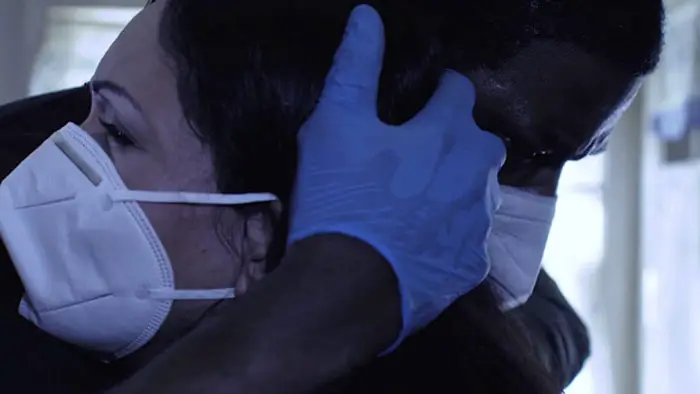
“…deeply unsettling…”
Yes, The Death of Us leans toward the heavy-handed in a lot of areas, both narrative and technical. The credibility-straining “shoot-on-sight” approach of the largely unseen government antagonists bluntly hammers the point home. The color-grading occasionally leaves the actors’ skin looking distractingly blue-ish, which is a specific choice. But even when things feel a little rough around the edges, the “what-ifs” don’t seem far outside the realm of plausibility, and the characters remain grounded and sympathetic enough that it’s impossible not to care about them. The two leads, by design, have to carry the movie, and both do solid work. Ahku, an actor and rapper who also contributes to the soundtrack, has some particularly affecting moments of quiet vulnerability.
The Death of Us spirals toward an ending that’s bound to be divisive. But it is not a cop-out and is grimly of a piece with everything that came before. Maybe the most disturbing thing about it, though, is not the denouement, but the question viewers are likely to walk away with: did I just see a movie about an apocalyptic scenario that was narrowly averted a few years back? Or was it one about something terrible that could still come to pass?
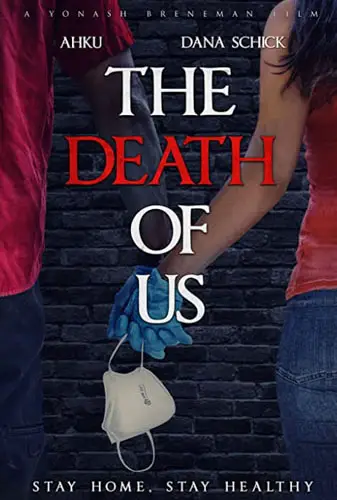
"…spirals toward an ending that's bound to be divisive."
